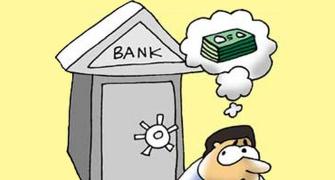 One major piece of legislation US President Barack Obama signed last year was the Credit Card Accountability, Responsibility and Disclosure Act, which made fundamental changes to credit card agreements.
One major piece of legislation US President Barack Obama signed last year was the Credit Card Accountability, Responsibility and Disclosure Act, which made fundamental changes to credit card agreements.
Some provisions were adopted last summer, but the bulk of them took effect February 22.
Here's an overview of a few major changes:
Restrictions on interest rate increases: The Annual Percentage Rate for interest on new credit card accounts cannot be increased during the first year unless:
- A clearly disclosed introductory period (teaser rate) ends; also, such introductory periods now must be at least six months long;
- It's a variable-rate (versus fixed-rate) card and the APR is tied to an index that increases (example, United States Treasuries);
- You enter a debt repayment workout plan and don't comply with its terms; or
- You are over 60 days late making at least the minimum monthly payment. Note: the new rules say the previous APR must be restored after you've made six months of on-time payments.
More advance notice: After the first year, banks and credit unions that issue credit cards may raise the APR on new transactions, or make other significant account changes, only after providing 45 days' advance notice. Also, you must be given an opportunity to cancel the card before these changes take effect and pay off the balance at the old rate.
Interest rate review: Every six months, card issuers must review accounts whose interest rates were increased based on market conditions, cardholder creditworthiness or other factors; and, if warranted they must reduce the rate or provide written notice why the increase should still apply. (Effective August 22.)
Bill and payment timing: Credit card statements must be mailed at least 21 days before the balance is due. Also, payments must be credited as on-time if received by 5 p.m. on the due date.
Order of balances paid: When one card carries balances at different interest rates -- such as one rate for purchases and another for balance transfers -- payments must be applied to the highest-rate balance first.
Enhanced statements: Credit card statements must clearly post how much you've paid in interest and fees for the year, the upcoming due date and potential late fees, and how long it would take to pay off your bill making minimum payments -- including total interest charges.
Other highlights
- Over-the-limit fees cannot be charged unless you have previously agreed (opted in) to allow charges over your credit limit.
- You cannot be charged additional fees for paying your bill online or by phone.
- Card issuers may no longer factor in average daily balances from a previous billing cycle that wasn't fully paid off when calculating current interest charges (known as 'double-cycle billing').
- People under 21 must have an adult co-signer in order to open an account unless they can prove their ability to repay their account balance.
- To learn more about particular changes to your credit card agreements, contact the bank or credit union issuing your card, or visit www.fdic.gov
- Always read mailings from issuers to ensure you're up-to-date on any account changes.







